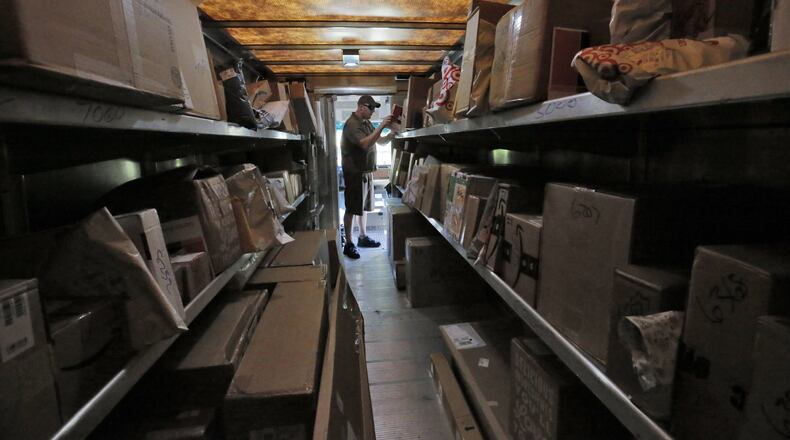Major Georgia employers are scrambling to figure out what workplace steps they will take if the coronavirus outbreak hits Atlanta and surrounding areas.
So far, many involve travel. Some companies already have put limited measures in place, from restricting international visitors in facilities to curbing employee trips.
But if U.S. cases grow as expected, changes will affect more employees closer to home. A top official at the Centers for Disease Control and Prevention recommended this week that companies start preparing for in-person meetings to be replaced by telephone conferences or other "teleworking" options. Some kinds of work, though, can't be done remotely.
Atlanta-based nonprofit Habitat for Humanity International announced Thursday it is suspending nearly 140 international homebuilding projects at least through early May. The postponements only involve international builds in which volunteers are brought in from other countries. All U.S. projects and most international ones aren’t affected, according to spokesman Bryan Thomas.
The move, Thomas said, is not just about protecting Habitat volunteers and staff. “We want to make sure we are not bringing infection to vulnerable communities.”
Habitat, which works in more than 70 countries, also is suspending international travel by employees and encouraging limits on in-person meetings in the U.S. and domestic travel.
Companies are wrestling with growing questions about the COVID-19 outbreak’s potential impact on their financial results, as U.S. stock markets were hammered again Thursday.
Michael Eckard, an Atlanta and Charleston-based attorney with labor and employment law firm Ogletree Deakins, said corporate clients are contemplating having more of their staff work remotely if the outbreak becomes a bigger issue in the U.S.
And companies are wrestling with what to do if more employees and vendors raise concerns about the risks of international travel or handling overseas cargo and packages, he said.
Package delivery giant UPS is still making deliveries globally in most areas, but said for its employees it has suspended all international travel that it doesn’t consider business critical. It also has expanded distribution of face masks to its workers not only in mainland China but now also in northern Italy.
And UPS is urging its crews that do travel to limit potential exposure, such as by minimizing contact with the public — including ground personnel — and staying about 6 feet away from others.
Home Depot said it has a team led by medical staff that is monitoring the coronavirus situation and contemplating options the retailer can take. It’s also told employees who recently traveled to Asia to quarantine themselves for 14 days.
“We are looking at this from all angles of the business,” spokeswoman Margaret Smith said.
Operations at the sprawling Kia assembly plant in West Point haven’t been impacted yet, according to the South Korean-based automaker. But it said it has postponed all worker travel to South Korea following the U.S. Department of State’s travel advisory and has restricted all international visitors to its facility.
Gulfstream Aerospace said it is taking extra precautions, such as not participating in a February airshow in Singapore and, this week, withdrawing from plans to host customers at a sporting event in Italy, where coronavirus cases recently surged. An annual air show that Gulfstream employees typically attend in Shanghai, slated for April, was cancelled.
Flooring company Shaw Industries wrote in a statement that in addition to restricting employee travel to some nations, it instituted remote work plans for those who have been or have potential to be exposed to the virus. Shaw also said it provided food supplies to its workers in China “to prevent them from having to go to the market and risking exposure.”
Coca-Cola Company has suspended non-essential international business travel to and from Italy as well as the Asia Pacific region. It also installed temperature screening in offices and manufacturing operations in areas particularly hard hit by the virus, and provided workers with face masks and hand sanitizers.
“We have asked our office workers in certain regions to work from home if they are able to do so as a further precaution against spreading the virus. As the situation evolves, we will take additional actions if needed,” Coke added in a written statement.
Southern Company, the parent of Georgia Power, said it is limiting employee travel. Companies such as AT&T and Truist, the banking company that includes the former SunTrust, said they continue to monitor the situation.
—Staff writer Kelly Yamanouchi contributed to this article.
About the Author
Keep Reading
The Latest
Featured




